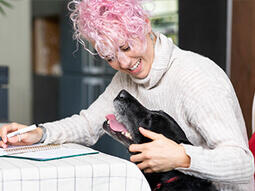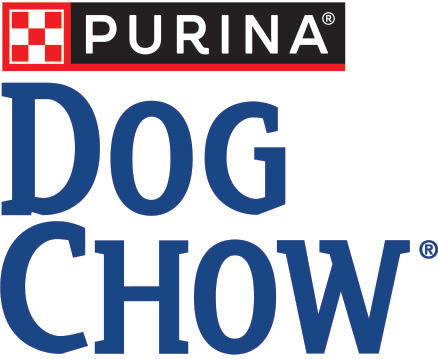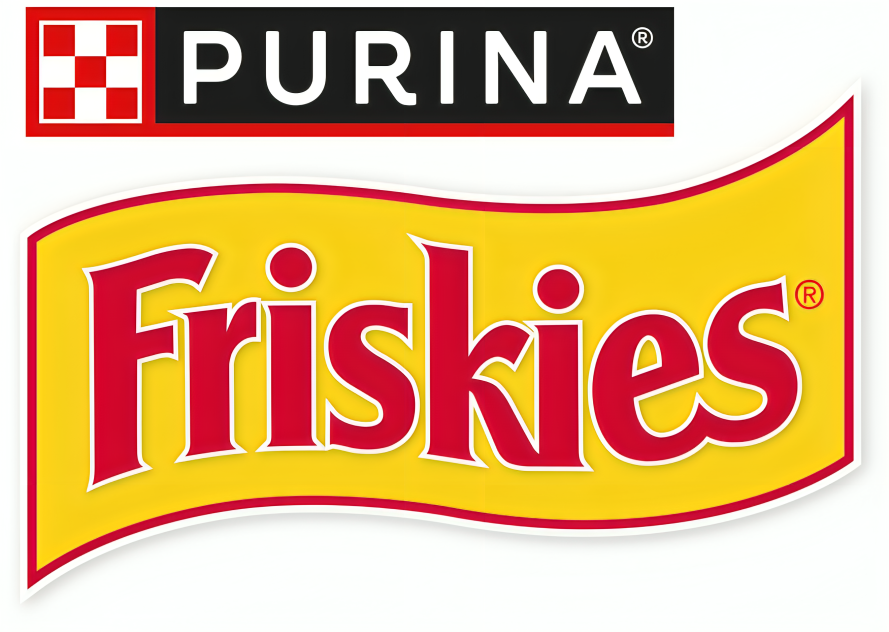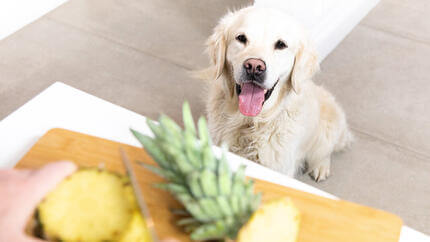
Nuts are packed with nutrients, so it’s natural for pet owners to want to share all that good stuff with their pooches. But there are a few things you need to know to make sure they can enjoy them as a safe snack.
Do you want to share your favourite nutty snack with your dog? Nuts are a great source of protein and nutrients, but they are also well known to be linked to serious allergies in humans. Is this the case for our canines too? Should we handle nuts with care around our dogs? If you’re wondering whether dogs can eat nuts, we’re breaking down the basics of sharing this popular snack with the four-legged member of the family. As always, if you’ve got concerns about your dog eating nuts, make sure to check with your vet first.
Can dogs eat nuts?
It depends. Nuts are one of the most nutritious snacks, high in protein and fibre, but they are also high in calories and fat. They often have added salt and flavourings, which makes them less suitable as a doggie treat.
Keep in mind that these crunchy treats come in many varieties, some of which can be toxic to your pet. So, it’s important to know which nuts are safe for dogs to eat and which ones can cause harm.
Most varieties of plain, unflavoured nuts can be given as an occasional treat. However, thanks to the high-fat content, if given in large amounts they can lead to conditions such as pancreatitis and obesity. It’s important to always remove the outer shell to reduce the risk of choking or abdominal obstruction.
There can also be mould toxins (alflatoxins) on nuts, which can lead to liver damage. Always make sure nuts are correctly stored and eaten by their ‘Best Before’ date.
Thankfully, dogs don’t seem to be at risk of severe allergic reactions to nuts which can affect some people.
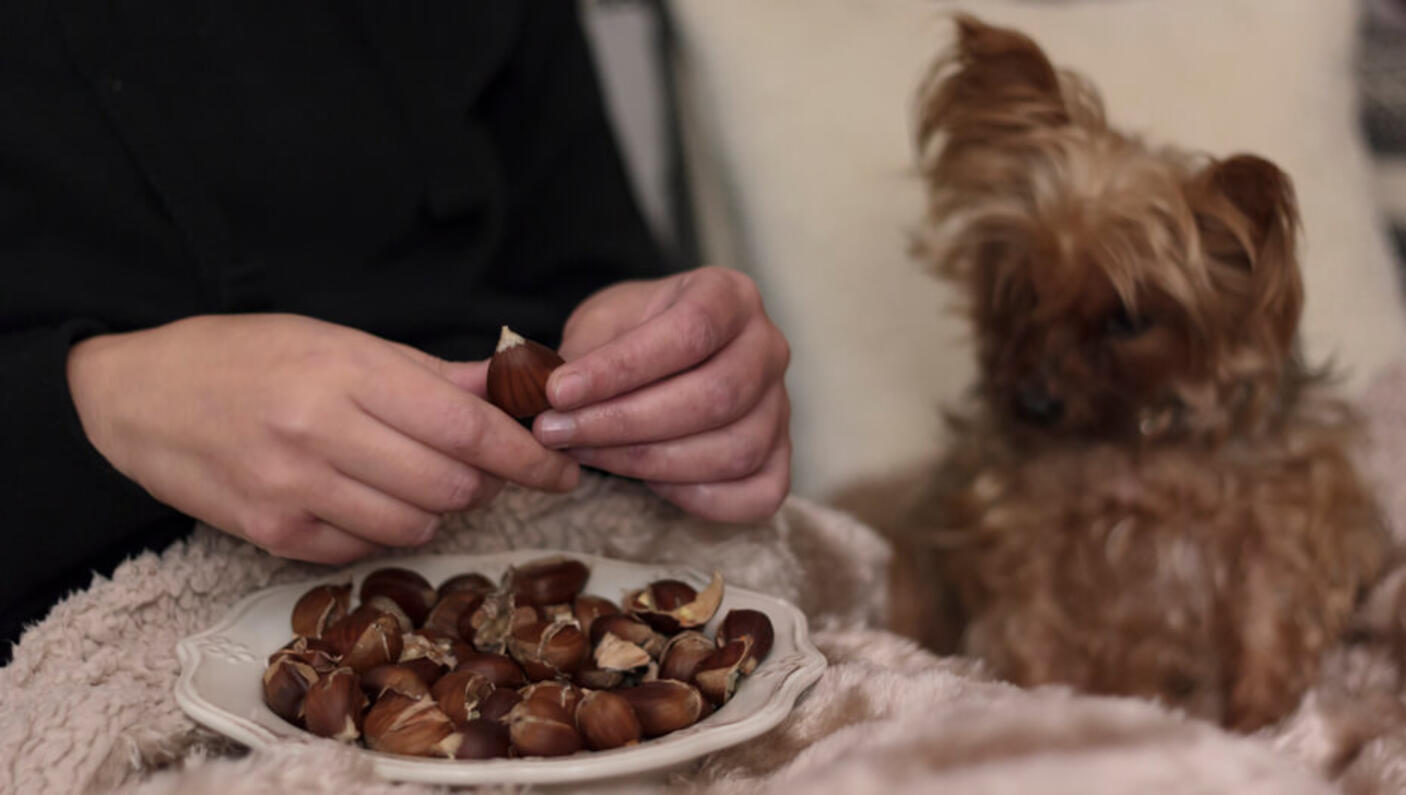
Can dogs eat cashews?
Cashew nuts can be given to dogs as an occasional treat, and many dogs enjoy this nutty treat. Always choose unsalted, raw or roasted cashews. Don’t pick them out of bags of mixed nuts as some other types of nut are toxic to dogs.
Can dogs eat almonds?
Dogs can eat almonds, but they should be offered cautiously. As with most of the nuts on this list, almonds are high in calories. This means that you should think of nuts more as an occasional treat rather than a daily reward.
The size and shape of these crunchy delights may spell trouble for smaller breeds if they are unable to break the pieces down. So, if you decide to offer them a bit of a nutty treat, make sure you watch out for any chewing difficulties, choking, or cut them into smaller pieces before giving them to your dog.
Can dogs eat peanuts?
It is generally safe for dogs to eat peanuts, however there have been a few cases of ill effects from dogs eating peanuts. Plain, unprocessed peanuts are usually safe, but can sometimes cause a mild stomach upset. Rarely, dogs have shown neurological signs with convulsions and muscle spasms, but this may be due to ingesting high quantities of salt on flavoured peanuts – rather than toxins within the nuts themselves.
Peanut butter can be even more harmful. Dog owners will sometimes use this spread to hide a dog’s medication if they are keen on swallowing pills. Nut butters may contain xylitol - a sweetener that is extremely toxic to dogs (but safe for humans) and should be always avoided. In addition, the added fats and sugars of nut butters mean these aren’t a healthy option for dogs.
Can dogs eat pistachios?
Pistachio nuts can be fed to your dog occasionally, without their shells, but they are not the most dog-friendly treat either. As with other types of nut, they are high in fat, and can be a choking hazard.
Can dogs eat walnuts?
Dogs are usually safe to eat particular types of walnuts, including the English walnut. These can be a rare treat for special occasions, especially if you’ve got a dog that goes nuts for the taste. But moderation is key. Due to their larger size when compared to other nuts, it’s best to make sure they only get smaller pieces of walnuts which can be easily digested. If your dog eats a whole walnut inside the shell there is a real danger this could lead to abdominal obstruction and you should contact your vet straight away.
Black walnuts however are dangerous and should never be fed to dogs due to their high level of toxicity.
Can dogs eat pecans?
Who doesn’t love a delicious slice of pecan pie? While the pie itself contains too much sugar and fat to be good for your dog, you are safe to share one or two of the nuts off the top with your four-legged friend. Keep in mind that due to their larger size, these nuts can be difficult to digest even for big dogs. Pecans are also especially high in fat. As long as these nuts don’t become a daily reward, the occasional pecan treat shouldn’t do your dog any harm.
Can dogs eat brazil nuts?
Although brazil nuts are not toxic for dogs, they do come with the title of ‘the fattiest nuts in the bunch’. So, if your dog managed to get away with a piece they should be okay, although do watch out for potential choking issues. Otherwise, it’s best to avoid feeding brazil nuts to your dog. They’ll be a particular risk for causing dog pancreatitis.
Can dogs eat hazelnuts?
Unsalted hazelnuts can be offered to a dog keen to try their owner’s favourite treat. Hazelnuts are not toxic to dogs, so one or two pieces on rare occasions won’t harm your dog. However, like any other type of nut, offering them frequently or in large quantities can have a negative effect on your dog’s health.
As with most other nuts, pancreatitis, obesity and choking are the biggest risks to keep in mind.
Can dogs eat macadamia nuts?
No! You should not feed macadamia nuts to a dog. Macadamia nuts are toxic to dogs and should not be offered as a treat. Although no one knows exactly what is the reason behind the toxicity of these particular nuts, we do know that even small quantities are dangerous for your canine friend.
If your dog accidentally ingests some of these nuts seek veterinary advice straight away. Fortunately, with the right treatment, your dog has a great chance of making full recovery.
How to feed nuts to your dog
You can also find out more about whether dogs can eat coconuts here. Now that you have the answer to the question ‘can dogs eat nuts’, you might be wondering what’s the best way to offer them to the dog. Although there are many healthier and delicious dog treats out there, if your pooch can’t resist a nutty treat, here is what you should look out for:
Nuts are high in calories and fat which means a dog can easily have too many. It is important to keep packets of nuts out of reach, and make sure you only offer them one or two nuts at a time and on rare occasions. Moderation is key in avoiding dangerous conditions triggered by high-fat content such as pancreatitis and obesity.
Nuts come in various shapes and it’s important to keep this in mind as you offer them to your dog. Pecans and walnuts will usually need to be chopped in smaller pieces to make sure your dog will chew them safely.
No matter how delicious we think salted peanuts are, your dog will thank you for choosing the less-flavoured, plain version instead. Foods with a high salt content do a dog’s system no good, which is why the best thing to do when offering them their prized nutty treat is to go for the unsalted version.
Flavoured, coated, caramelised or served as a nut butter, these treats may be delectable for us, but for a dog these treats can be harmful. Xylitol is a sugar substitute that is extremely toxic to dogs and can be found in sweet products, such as peanut butter. Onion and garlic powders used to make nuts extra tasty are harmful to dogs. Remember that dogs and chocolate shouldn’t mix, so make sure you don’t give your pooch chocolate-coated nuts. Always read the product labels, before giving any nut-based treats.
Another important tip is to make sure there are no shells, or shell fragments before giving your dog a nutty treat. These are not only choking hazards, but can also cause intestinal obstruction. For this reason, it’s a good idea to keep the festive nut bowl out of reach of your pooch!
Remember those aflatoxins? These are harmful toxins which can be present on mouldy nuts and can lead to liver failure and seizures. Always check how fresh the almonds, pecans and other nuts are before letting your dog near them.
Curious about what other human foods can dogs eat? Find out if dogs can eat popcorn, another all-time favourite snack.
